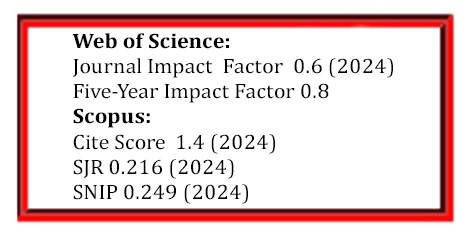Microstructural Analysis and Optimization of Asbestos Free Brake Pad
DOI:
https://doi.org/10.5755/j02.ms.37951Keywords:
seashell (SS), brake linings, morphological studies, friction materialsAbstract
A friction lining material that is free of asbestos has been developed using sea shell powder (with a diameter of 125 μm), phenolic resin as the binder, and alumina metal filings and graphite as fillers. Prior to pulverization, the sea shells were oven-cured at 100 °C for five hours to eliminate excess moisture. The resulting pulverized sea shell, along with phenolic resin, alumina metal filings, and graphite, was used to create samples, which were evaluated according to the ASTM D 4703-03 standard. The newly developed asbestos-free brake pads incorporating sea shell powder (SS) and four other components underwent physical, chemical, and Thermal Gravimetric-Differential Thermal Analysis (TG-DTA) assessments, comparing them with commercial brake pad materials. Morphological examinations of worn surfaces indicated various forms of wear, including abrasion, adhesion, grooving, and delamination. Scanning Electron Microscope (SEM) images showed that the worn surfaces of the composite with 35 wt.% SS powders exhibited a smoother finish with fewer cracks, suggesting reduced wear. Taguchi's analytical approach (L16 orthogonal array) was employed to assess the coefficient of friction and wear rate under different tribological parameters. Additionally, a statistical analysis of variance (ANOVA) was conducted to identify significant compositions for optimal brake lining performance. The ANOVA tables revealed that the regression models were valid as the P-values were less than 0.05 for a confidence level of 95 %.
Downloads
Published
Issue
Section
License
The copyrights for articles in this journal are retained by the author(s), with first publication rights granted to the journal. By virtue of their appearance in this open-access journal, articles are free to use with proper attribution in educational and other non-commercial settings.



